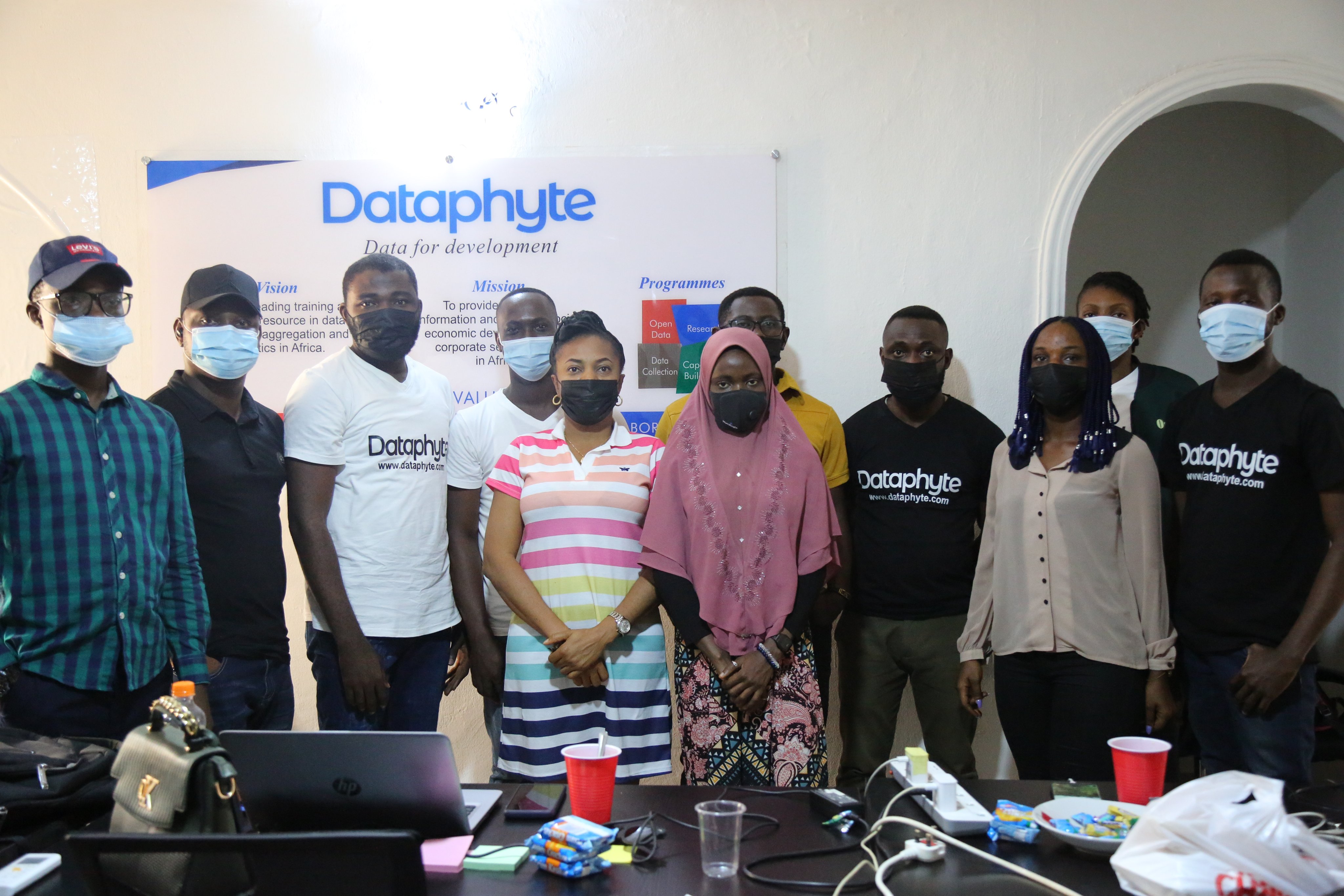Abuja Open Data Day - Relatório do Evento
- Dia
- Saturday 6 March 2021
- Horário
- 9:00 (WAT)
- Local
- Abuja, Nigeria (Europe, Middle East & Africa)
- Organizadores
- Dataphyte
No sábado, 6 de Março de 2021, o décimo primeiro Dia dos Dados Abertos foi realizado por pessoas de todo o mundo através da organização de centenas de eventos para celebrar, promover e disseminar o uso de dados abertos. Graças aos generosos suportes, a Open Knowledge Foundation foi capaz de apoiar a realização de mais de 60 destes eventos através nosso esquema de minibolsas.
Este evento recebeu uma minibolsa da Open Knowledge Foundation graças ao suporte de the Open Contracting Partnership.

Como seu evento celebrou os Dados Abertos?
We celebrated Open Data Day by hosting an interactive data session on using open government data to investigate COVID-19 spending in Nigeria.
Eighteen participants across six organizations interested in using open government data to investigate COVID-19 spending registered and attended the data party.
Since the whole activity of the day was conceived to be mainly interactive, at the point of registration, provision was made for participants to indicate what they want to learn, share and open data is of interest to them. The feedback from this exercise was used to place participants into groups during the story ideation session.
The Abuja Open Data Day event focused on five main themes.
• Introduction to open data
• Open data as a tool for advocacy, transparency and accountability
• Where to find open data on COVID-19 spending in Nigeria
• The marriage between compelling and accountability COVID-19 stories
Journalism in the age of open dataIn general, the event outlined the process of spotting red flags in COVID-19 dataset and reporting the red flags. It presented the various sources of COVID-19 spending datasets in Nigerian. Also, the event presented the various strategies of interrogating COVID-19 data for procurement fraud.
Yusuf explained Red flags in procurement: suspicious repeat line items, ownership of contracting companies and tax history, overpriced and frivolous projects pic.twitter.com/09D6ovr5f7
— Dataphyte (@Dataphyte) March 6, 2021
Lições aprendidas no evento:
Participants of the Abuja Open Data Day agreed to the following:
- To not only be problem pointers or corruption pointers but also project solutions that can be used to amend the situation
- Present the local, national and international perspective when birthing a COVID-19 story so as to showcase international best practices and policies as solutions.
- To think of multimedia as an audience engagement strategy while delivering investigative stories especially on COVID-19.
- To increase public procurement transparency and government accountability by carrying out a deeper analysis of budget, procurement, and revenue data.
- Increase the advocacy for open government data
Porque você ama o Dia dos Dados Abertos?
I love open data day because it provides an opportunity for an interactive and skill share session on the use of freely available data for the purpose of demanding transparency and accountability of public institutions and processes.
